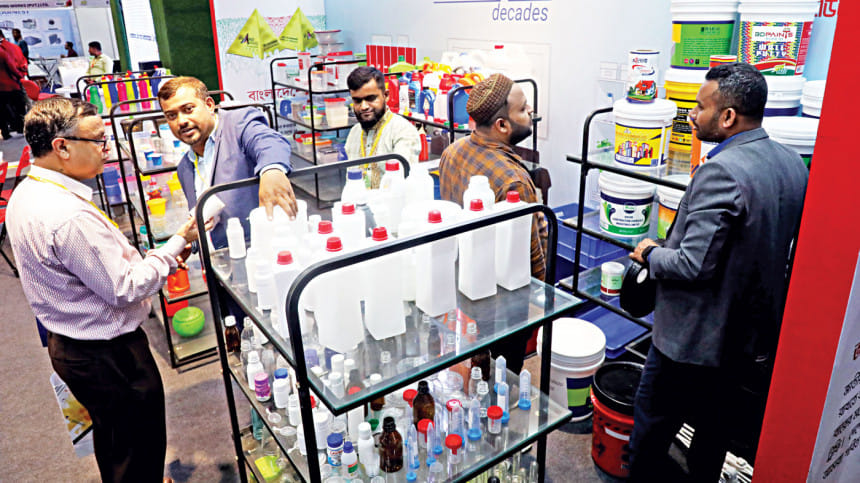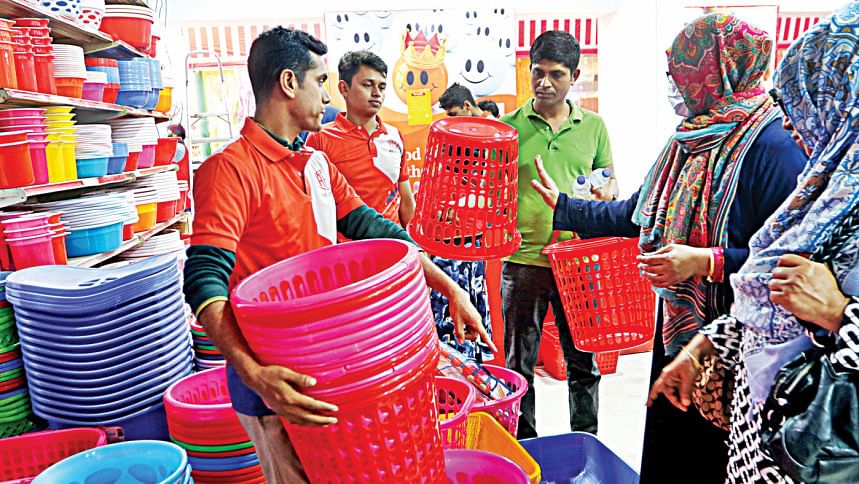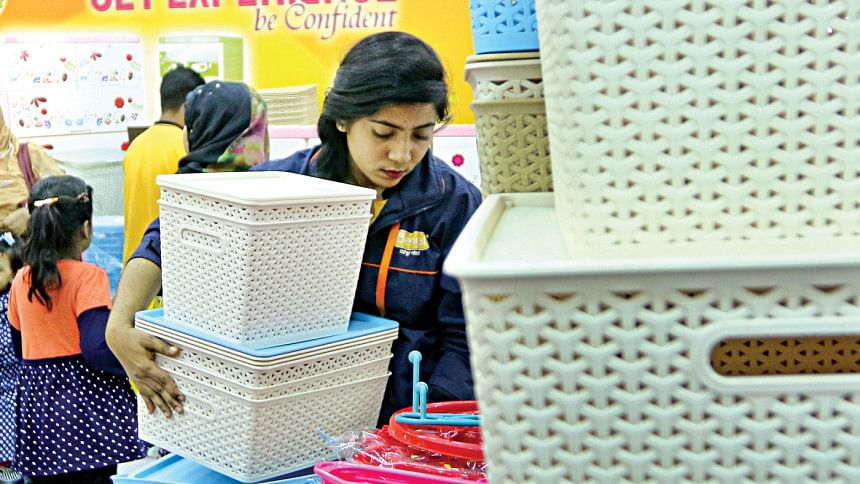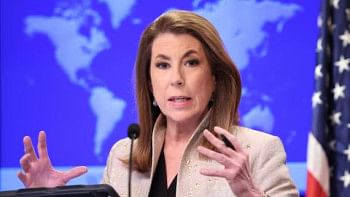Plastic industry policy aims to expand domestic market

The Plastic Industry Development Policy 2023 has set a target to increase the plastics and packaging industry market from around $4 billion now to $10 billion by 2028.
The policy was approved by the cabinet on September 4 and will be implemented for a period of five years from the date of approval.
However, there is scope to amend the policy from time to time in the light of new circumstances based on the results of evaluation and monitoring activities.
"The target is really ambitious but it is achievable if the global financial crisis ends soon. The country's macroeconomic situation will be stable over the period," said Shamim Ahmed, president of Bangladesh Plastic Goods Manufacturers & Exporters Association (BPGMEA).
According to him, the plastic sector is currently facing a skilled manpower crisis but that will be combatted through the BPGMEA's training institute, Bangladesh Institute of Plastic Engineering and Technology (BIPET), which aims to train skilled manpower to help the sector increase productivity.
The policy also set a target to provide demand-based training to 10,000 individuals by 2028 to create skilled manpower while also aiming to create 5,00,000 new employment opportunities in this sector by 2028.

Ahmed lauded the policy for having clear guidelines to develop the sector and lead to export diversification.
Currently, Bangladesh directly and indirectly exports around $1.5 billion worth of plastic products.
According to Ahmed, Bangladesh, despite huge potential, is lagging far behind in achieving market advantage for the export of plastic products on a priority basis mainly due to a lack of appropriate policy support.
The policy aims to ensure consistent annual growth of 15 percent in the sector and eliminate problems and obstacles facing new business ventures in this industry before 2026
Ahmed believes the policy will fill these gaps.
The policy aims to ensure consistent annual growth of 15 percent in the sector and eliminate problems and obstacles facing new business ventures in this industry before 2026.
It also set a target to increase the contribution of the plastics sector to total GDP by at least two percent by 2028. Currently, it is below one percent.
The policy sees a possibility of the plastic industry of Bangladesh occupying an important place in the global plastic product market.
Bangladesh occupies only 0.6 percent of the current $570 billion global plastic product market. According to a study by Grand View Research, the global market for plastic products will increase to $ 721.14 billion by 2025.
According to BPGMEA, the country's overall plastic product market is worth around $4 billion, of which 83.4 percent is manufactured domestically while the remaining 16.6 percent is imported.
The average per capita consumption of plastic products in Bangladesh is around 5-7 kg, while the global average per capita consumption is around 50 kg.
The policy also said it was necessary to increase the production capacity of import substitutes and export more value-added products to expand the market for local products throughout the country.
Incentives under the policy
Under the policy, the government will provide exemption from income tax for the first 10 years in plastic parks and backward linkage industries as well as duty-free imports of capital equipment, spare parts and accessories.
Besides, special concessions on export duties, duties, taxes and fees will be given for loading, unloading, or storage of goods at ports or importation of capital equipment.
Tax credits will also be provided on raw materials and supplies while there will also be necessary tax concessions in respect to basic infrastructure development work.
Even VAT on purchases of local goods and services, including land-based telecommunications, electricity and utilities, will be reduced while bonded warehouse facilities will be made available.
How the policy will be implemented
A National Council on Plastics Industry Development (NCPID) shall be constituted to supervise and monitor the implementation of the policy at the national level.
The NCPID shall be headed by the Minister of Industries and shall consist of 27 members. The council will sit at least twice a year.
The NCPID will be responsible for facilitating policy coherence between national development policies and this policy as well as its integration with other national policies.

NCPID will facilitate and coordinate national positions on plastic industry development issues for national as well as international purposes.
The council will review reports from the National Steering Committee (NSC) on the impact of the policy in various sectors of the economy.
The NSC for plastic industries promotion will be headed by the secretary of the ministry of industries, who will act as its chairperson.
Under the policy, the government will also create industrial cities or special economic zones for plastic industries in Bangladesh Small and Cottage Industries Corporation industrial cities or designated special economic zones.

 For all latest news, follow The Daily Star's Google News channel.
For all latest news, follow The Daily Star's Google News channel. 



Comments